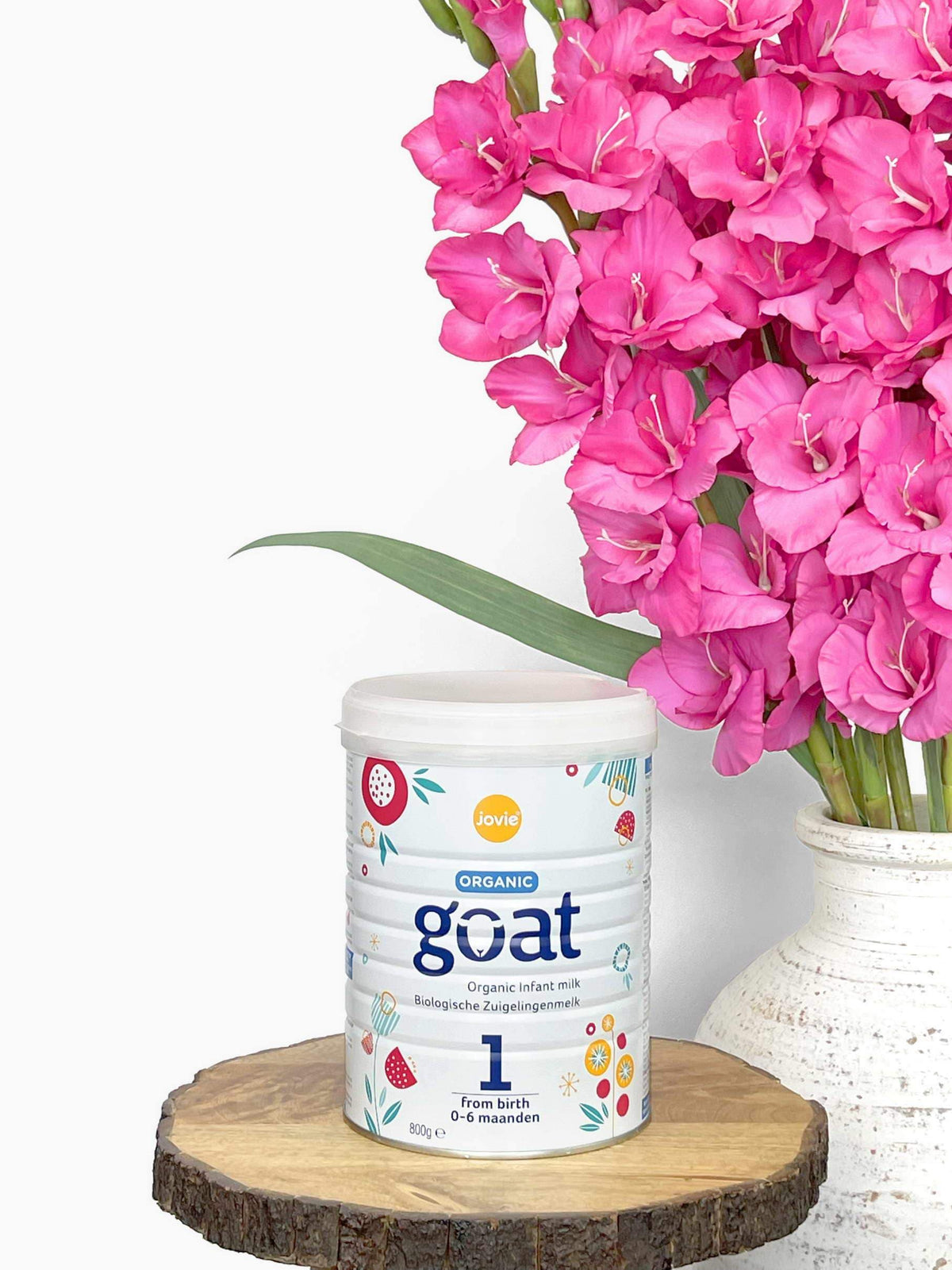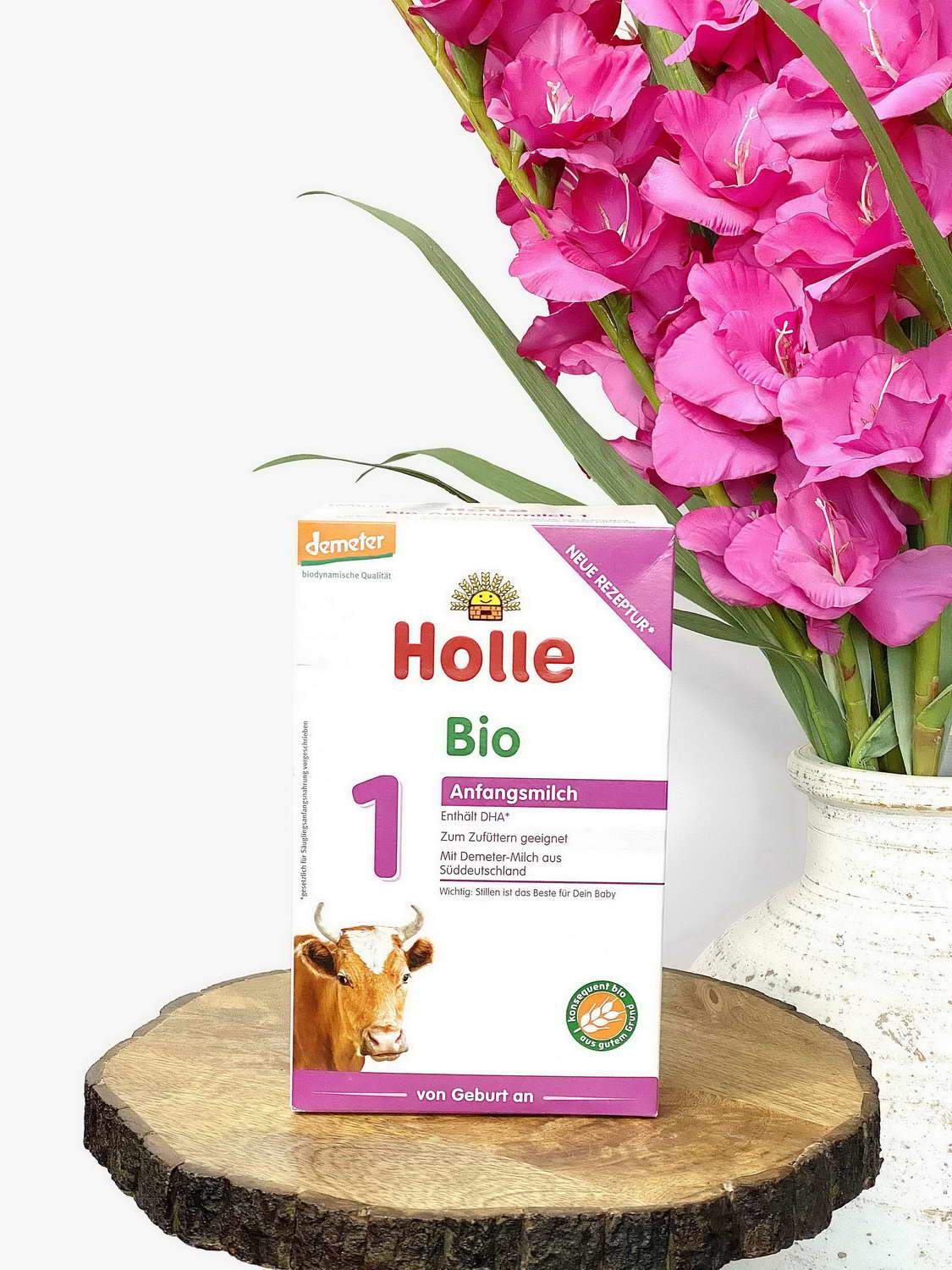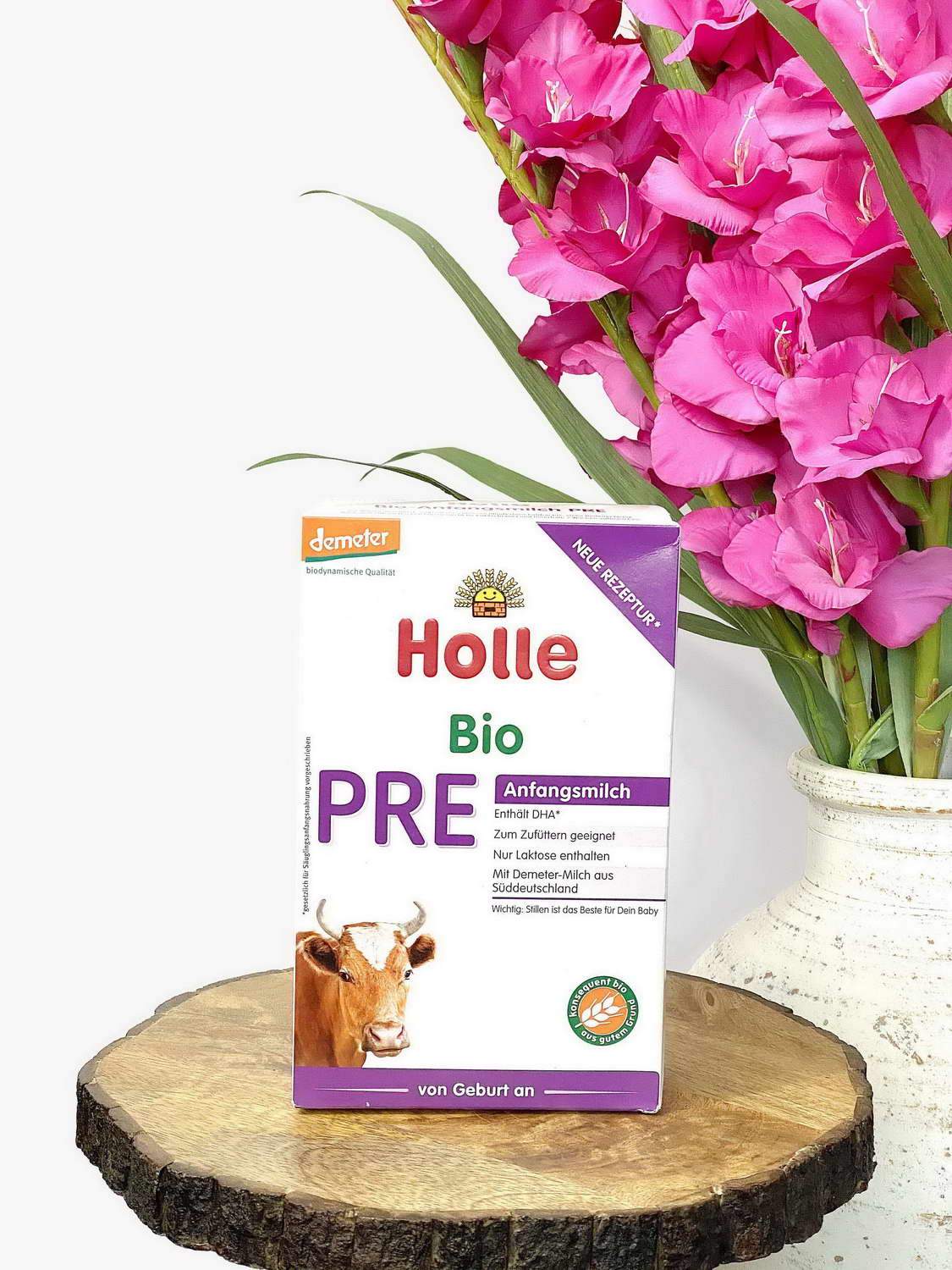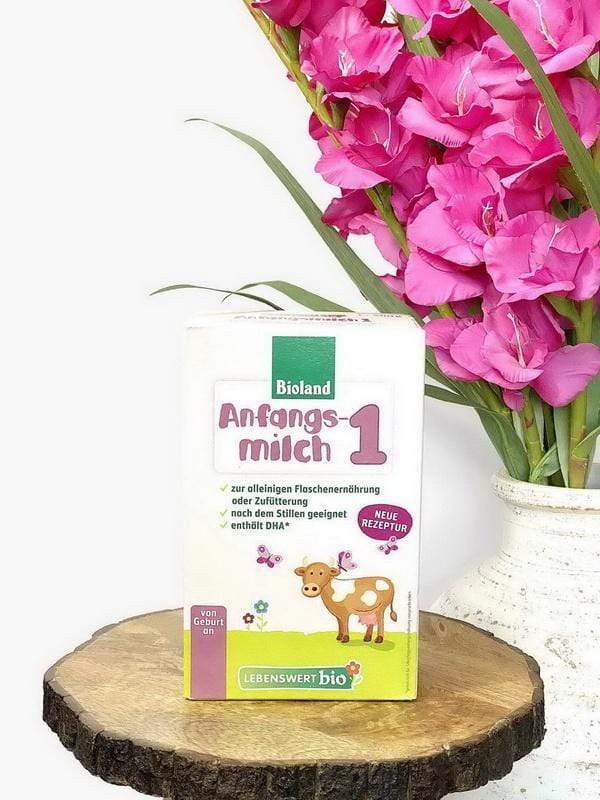The majority of all baby formulas are made from cow's milk. Vitamins, minerals, and nutrients are added to mimic the nutrients in breastmilk as close as possible. When you choose a baby formula with clean ingredients without additives, preservatives, or chemicals, most little ones do well on cow’s milk-based baby formulas.
However, there are some digestive or medical situations that make it hard for babies to tolerate some of the ingredients naturally found in cow's milk. The good news is if your baby needs a little extra support there are other options available.
We discuss the differences between two of the most popular European sensitive formulas, HiPP AR and HiPP HA, in hopes of helping your family choose the best option for your sensitive baby.
Anti-Reflux Baby Formulas
Acid Reflux in Infants
Acid reflux in babies is a condition that causes the acid and content of the stomach to travel back up the esophagus and the throat. Although reflux can affect infants through adulthood, it is mostly commonly faced by infants aged three months and younger.
Reflux found in infants is mostly due to the valve that keeps acid in the stomach being underdeveloped. As a result, the one-way valve that usually will only open during swallowing is either unable or does not close correctly.
Since a baby spends most of the time in a horizontal position, the liquid contents of the baby's formula are more likely to flow back into the esophagus - the tube that connects the throat with the stomach. Other causes of infant reflux are food allergies and hiatal hernias that are formed at birth.
Signs of Acid Reflux in Infants
All babies spit up at times, but when it happens very often, the chances are your baby is suffering from acid reflux. Although most acid reflux attacks occur after feeding, it can happen almost anytime your baby coughs, cries, or strains.
The symptoms to watch out for are: frequent and recurrent vomiting, persistent coughing at meal times, and signs of heartburn, gas, or abdominal spasms. Babies with reflux may have trouble eating and act cranky, especially after meal times or prolong periods of laying down.
How to help Acid Reflux in Babies
For treatment of infants with acid reflux it is generally agreed that elevating the baby's head during and after feeding can help prevent reflux. Keeping your little one in an upright position for about 30 minutes after feeding is a simple, yet effective, preventative measure that greatly reduces the chance of reflux.
Many parents report that the problem of reflux often responds well to the use of baby formulas that have been thickened. These formulas sit heavier in the stomach, which allows more time for digestion.
Anti-Reflux Baby Formula
HiPP Anti-reflux baby formula is a special nutrition that has been designed to ease acid reflux in infants. This baby formula is also highlighted by the all-natural, organic ingredients that are perfect for newborns all the way through the first year.
Best Formula for Reflux
HiPP Anti-Reflux
Age: 0-6 months
Size: 500g / 17.6oz
Why Choose?
Organic Locust Bean Gum makes this creamier and easier for babies with reflux / spit up
HiPP AR contains organic locust bean gum that makes this baby formula creamier and thicker and works perfectly in harmony with the probiotics and prebiotics to support the digestive needs of little ones with reflux.
HiPP Anti-reflux also contains vitamins and minerals for optimal growth and the reinforcement of absorption so you won’t have to worry about nutrient deficiency that can happen during spit up. As with any digestive worry, we strongly recommend checking with your pediatrician before switching baby formula.
Hypoallergenic Formula
Hypoallergenic Baby Formula: What is it?
Hypoallergenic baby formulas contain hydrolyzed proteins that have been partly broken down to make them easier for infants to digest.
They are recommended by pediatricians when there are milk protein sensitivities or to prevent food allergies in babies who are at high risk because of a family history. Hypoallergenic formulas also offer some protection against eczema in infants.
Hypoallergenic Infant Formula: When to use
Diarrhea:
When a formula fed baby has diarrhea it can be a sign that your little one has a cow’s milk intolerance or a possible food allergy. In both these cases a hypoallergenic formula can soothe tummy troubles.
Diarrhea in a little one can be frequent, watery, and sometimes foul-smelling. Diarrhea can lead to dehydration, so it’s important to talk with your pediatrician to ensure proper treatment and nutrition is given.
Food Allergies:
With little ones that have food intolerances or allergies you may notice that there is blood in their stools. The blood is caused by the formation of small ulcers within the GI tract brought on by an allergic reaction. The sight of bloody stools for parents can be quite concerning for caregivers and parents; following up with a pediatrician is very important.
With confirmation from your infant's doctor that there is a food allergy involved, switching to a hypoallergenic formula is extremely beneficial. You will notice symptoms disappearing within a few weeks.
Gas:
As your little one's digestive system develops it is completely normal for babies to experience gas. However, excessive gassiness accompanied by a bloated stomach, clenched fists, and/or a foul odor may be a sign of a milk intolerance.
When this happens, painful gas can be alleviated easily with hydrolyzed proteins that are found in hypoallergenic formula.
Eczema:
Babies can develop this sometimes painful rash for a variety of reasons. Sometimes eczema may be due to a sensitivity or allergy in milk protein. Eczema is characterized by red bumps on your baby's face, scalp, hands, or feet that may itch or feel like dry, scaly skin.
When paired with other habits that can soothe baby's skin, you should see an improvement using hypoallergenic baby formula within two to four weeks.
HiPP Hypoallergenic Formula
For digestion problems and skin reactions due to a sensitivity in cow’s milk or food allergies, European hypoallergenic baby formulas are the very best option. Trusted brands such as HiPP HA go the extra mile to ensure proper nutrition without allergy causing ingredients.
Best Hypoallergenic Formula
HiPP HA PRE
Age: 0-6 months
Size: 600g / 21oz
Why Choose?
Prebiotics & Probiotics for healthy digestion, hydrolyzed milk proteins for reduced allergic reactions, no starch or maltodextrin
This specialized formula contains hydrolyzed milk proteins that make it easier to digest and minimizes the risk of an allergic impact. Just like breast milk, HiPP HA features lactose as the main source of carbohydrates, as well as a blend of organic and essential vitamins and minerals. It also contains both prebiotics and probiotics in order to strengthen your baby’s gut microbiome, immune system, and further aid in fighting allergens within your baby's digestive system.
HiPP HA also contains omega-3 and omega-6 long chain polyunsaturated fatty acids (including DHA and AA), which contribute to the healthy development of the brain, eyes, and nervous system in infants. What this hypoallergenic baby formula does not have is unwanted additives, preservatives, heavy metal or chemicals. Only pure, allergy free nutrition.
Baby Formula for Sensitive Stomachs
For all your little ones digestive and nutritional needs, My Organic Company is an excellent choice. If your family and doctor has determined your infant needs a specialty formula, we can help you choose the right fit for your digestive needs and stage.
When choosing between HiPP AR or HiPP HA, it can be confusing, so hopefully we have made the choice a bit easier for you. In case you still have questions, we are here for you too! Our knowledgeable caregivers and European baby formula experts look forward to hearing how we can best serve you and your family.














